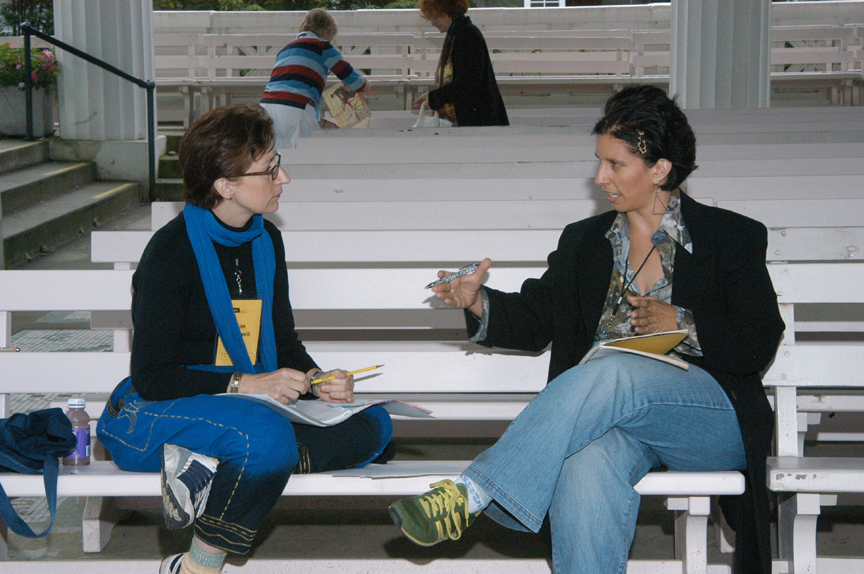
One of these people is a gatekeeper: an editor. The other is a hero hoping to be allowed through the gate: a writer. Which is which? Can you tell? Is it the one speaking, or the one listening? The speaker looks authoritative. The listener, earnest, perhaps eager…or intimidated.
One of the most intimidating parts of the publishing process is that not only are there gatekeepers, agents and editors in particular, but it seems nearly impossible to even get TO the gatekeepers. If they’re agents, they’re not taking submissions. If they’re editors, they’re not taking unagented submissions. If they’re accepting submissions (agents or editors), they’re looking for books from authors from races or cultures other than yours (no matter what that might be), LGBTQ authors (unless you’re an L-G-B-T-or Q author and they already have one of THOSE books on their list). They’re looking for books from people with platforms (and they’re not talking about shoes), books from celebrities or social media influencers, books from royals. They’re looking for fantasy books. They don’t want to see fantasy books, especially high fantasy. They want realistic fiction. They want dystopian fiction. They’ve seen enough dystopian fiction to last a lifetime and, besides, the world is too dystopian right now to read books about dystopias. They want something scandalous. They can’t afford to take on a book that might cause a scandal.
Whatever they’re looking for, they’re not looking for it from you (whoever you are), unless—and here’s the point of this post—you’ve written a book that captures them on page one and doesn’t let go until the end. Every excuse in the agent or editor’s playbook will go by the wayside if you write an irresistible book.
The point of gatekeepers is to hold the gate against the ravening hordes but open it for that rare guest (sometimes uninvited but most often holding a gold-embossed invitation) who can bedazzle readers, advance their careers, and ensure that the realm increases in wealth. Because, let’s just say this, if your book doesn’t make them money then they lose money and that is not a way to keep publishing books.
So, the first point of this seemingly pointless blog is that editors are still looking for the same thing they’ve always looked for: great books.
The second point is that if you have written a mediocre book or a good book, and you haven’t been invited to submit or you aren’t someone with name recognition, you’re exactly where you’ve always been: in need of practicing and perfecting your craft until you write that book that can’t be resisted. Go to conferences (online if you must), take workshops (web if you must), join a critique group, hire a writing coach, take college classes. You’ll meet people. Some will be agents, others editors. They’ll like you and want to read your work and encourage you. Keep reading. Read books you love and read books that have just been published to try to figure out what made an editor say yes (even the ones you don’t love).
The third point is…excuse my language but being a writer is damned hard. If you can’t tolerate uncertainty and an overwhelming feeling of powerlessness while you simultaneously write a great book, do anything else book-related that you love, because it will be easier and more profitable (for most). In fact, become an editor. Editing is an awesome job. It’s hard, but awesome. There is a salary involved (not huge but equally awesome) and benefits (probably) and the chance for promotion if you’re good at it. You’ll meet lots of wonderful writers and agents and book people. Or work in a bookstore. (Every writer should work in a bookstore or a library for a bit to see what people actually buy or check out.) Become a book reviewer or a book influencer of whatever the next bookish thing might be. And, also, keep writing. No one can stop you but you. Whether you have the “luxury” or “angst” of writing full-time, or you write part time, you’re making progress toward writing the irresistible book. And that book-related job teaches you many things you need to know in the process.
As for which of the above is an editor and which a writer? I chose the photo to show visually that the immensity of power you perceive in editors (and agents) is all in your head. Those two women look alike in many ways, don’t they? Unless you know those women, you can’t tell. Editors are just people, people who love stories, love turning the pages of books. Sure, they’re gatekeepers, but they are also gate openers. They are sometimes right about which books will sell and they are sometimes wrong. They have tastes, prejudices, opinions. They’re just like you when you walk into a bookstore. You don’t pick up every book. You don’t give every book the first sentence test. You certainly don’t BUY every book. You sometimes find a book in a genre you never read (or from a new writer or a writer you’ve never heard of) and you LOVE it. Then you buy and read every book that author writes or has written. That’s how it happens for readers…and for agents and editors. The gate swings open.
Discover more from Cozies & Kim Griswell
Subscribe to get the latest posts sent to your email.

Excellent post! Thank you!
LikeLike
Thank you, Shelly!
LikeLike
I too agree that editors are humans too, and just because they reject your work doesn’t mean that you suck. It could also mean that they weren’t in the mood for particular genre, or they have certain biases. And that bookstore analogy is pretty good! Anyway, thanks for this post!
LikeLike
I needed this today. I am so glad I read it. Thank you, Kim.
LikeLiked by 1 person